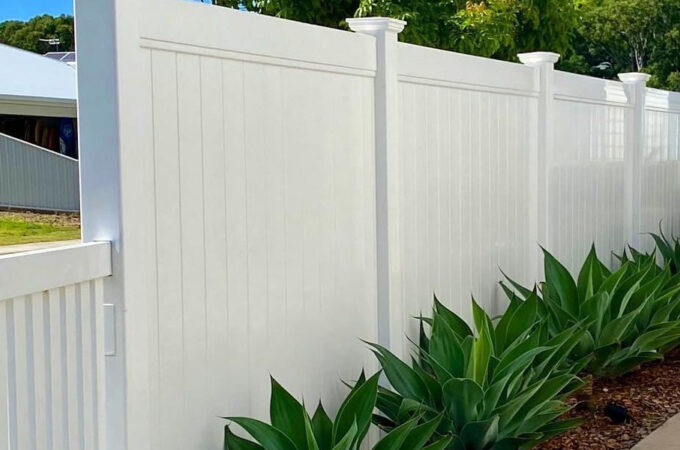
Fencing Contractors
Many homeowners prefer to work with fence contractors that abide by the construction rules and regulations in their area. Contractors handled a variety of projects and learned how to overcome various challenges.
A simple Internet search can provide reviews and feedback on fencing companies. Also, many hardware stores have local fencing contractors they employ and vet for credentials.
There are four preferences that most homeowners have when it comes to getting their fence built. They want the fence to be made of quality materials that will last a long time; they want a contractor who has experience building fences; and they also want to know that their specifications will be followed exactly. Finally, they want to get their fence built at a fair price.
All of these things are easy to find out when you hire a licensed fence contractor. The fencing contractor should have a website that provides extensive information about their company, such as the services they offer, the types of materials they use, and the companies they work with. The site should be well organized and easy to navigate so that you can quickly get the information you need.
It is also important to ask the fencing contractor how long they have been in business. The longer they have been in business, the more experienced they will be. This means that they will have a better chance of finishing the project on time and within your budget.
If you are not sure how long a fencing contractor has been in business, it is helpful to check their reputation online. You can do this by looking at their reviews on Google, Facebook, and other websites. This will give you a good idea of how satisfied their customers are with their work.
In addition to checking the fencing contractor’s experience, you should also ensure that they have a valid license and insurance. This will protect you in case something goes wrong during the job. Licensed contractors will be able to provide you with proof of their licensing and insurance.
In order to get licensed, the fencing contractor will need to have several years of experience working on different types of projects. They will also need to provide a detailed description of the types of projects that they have worked on in the past. This will help the Contractors State License Board (CSLB) determine whether they are qualified to perform the work. The contractor will also need to provide references that can vouch for their experience in the industry. These references should be from people in the fence industry who can vouch for the contractor’s qualifications and work ethic.
License
A fence contractor needs to have a license in order to work legally. They must also have insurance to cover any damages that may occur while working on your property. Generally, they should have liability and worker’s compensation insurance as well. The amount of coverage a contractor has depends on the type of job they do and the state they operate in. Those who specialize in fence installation typically need more insurance than those who do construction or landscaping projects.
Many states require fencing contractors to obtain a permit before starting construction on a project. In addition, they must have general contractors’ licensing to ensure they follow all construction rules and regulations. A licensed contractor is more likely to abide by the rules of their jurisdiction, which protects the consumer and provides greater accountability.
Fence contractors who are licensed have extensive training in constructing and repairing fencing. They know the best materials to use and how to properly install them. They can also advise you on what types of fencing will meet your needs and the legal requirements of your area. A quality fence from a licensed contractor can increase the value of your property, and they will provide you with excellent customer service.
The qualifications of a fence builder vary from state to state, but you should look for one with a high school diploma or GED certificate and prior experience in carpentry or construction. They should also have good math skills and physical stamina. Fence installation is labor-intensive, and the job requires the ability to dig post holes and pour concrete. Fence builders should also be able to read blueprints and understand the local building code.
To become a certified fence contractor, candidates must complete a number of tasks and pass a series of exams. They must also submit three letters of recommendation from individuals who can attest to their qualifications, personal integrity, and reputation for professionalism. The letters cannot be from immediate family members or coworkers.
A CFC designation carries with it the seal of approval from the nation’s top credentialing organization. It is ideal for owners, upper-level management, and next-generation owners of fencing companies who want to demonstrate their knowledge of best business practices and inspire customer confidence.
Insurance
Fencing contractors must obtain a variety of insurance policies to cover the financial risks associated with their business. They are at risk of being sued if they cause property damage to third parties or if their workers suffer work-related injuries. In addition, their tools and equipment are at risk of theft and fire. The best way to protect themselves from these risks is by having comprehensive commercial insurance coverage. This type of insurance includes general liability and commercial property. It also includes workers’ compensation, which is required by most states for businesses with employees.
General liability insurance offers protection if your fencing company is responsible for damages to a client’s property or personal possessions. It also covers the costs of repairing or replacing fences damaged by weather, vandalism, and other natural disasters. It can be purchased as a standalone policy or as part of a business owner’s policy (BOP). In addition, fencing contractors can get tools and equipment coverage, which helps cover the cost of replacing their valuable gear if it is stolen, lost, or destroyed.
Professional liability insurance protects a fence contractor from lawsuits that result from mistakes or negligence on the job. It can cover legal fees and other expenses if a client sues the business for financial loss, including loss of revenue due to a delay in construction. Errors and omissions insurance can also pay for damages if you are accused of breaching a contract with a client.
Fencing insurance also protects against a variety of other risks that may occur during the course of a project, such as property damage to third parties. For example, if a car crashes into a homeowner’s fence, the driver can file a claim with their own insurance policy to cover the damage. This can include the cost of repairing or replacing the fence and any other related expenses.
In addition to the insurance policies mentioned above, fencing contractors should consider getting a bond. These are typically used to guarantee some aspect of a bidding process or building project and can help reassure clients that you will do quality work. They can also be required by some municipalities, so it is important to check with your local government before applying for one.
Warranty
When selecting a fencing contractor, it’s important to ask about the warranty that comes with their work. This can help you determine the quality of the materials used and how long they’ll last. Typically, a fence warranty covers damages that occur during installation or due to normal wear and tear.
In addition, a good warranty can give you peace of mind, knowing that your fence is an investment worth protecting. A well-written warranty should clearly state what is covered and what is not covered. For example, a warranty may exclude repairs for damage caused by abuse, vandalism, or weathering.
The length of the warranty is also an indicator of how much trust a company places in its work. The longer the warranty, the more confidence you can have in your new fence. This is because a good contractor stands by the quality of their artistry and the quality of the fence supplies they use.
You should also inquire about the type of material that will be used for your project. Make sure you’re getting a high-quality product that is durable enough for your climate. A reputable fencing company will provide you with an estimate of the cost and how long the project will take. This will help prevent any unexpected surprises down the road.
After the installation of your fence, a professional contractor will conduct a final inspection to ensure that everything is in working order. This will include checking for loose posts or gates and making any necessary adjustments. They’ll also advise you on how to properly care for your fence and how often to perform routine maintenance checks.
Installing a fence is a complex task that requires patience and precision. It’s not something you should attempt on your own. Hiring a fencing contractor is a smart decision that will save you time and money in the long run. They have the experience and access to the best fence supplies to ensure your project is completed on time and within budget. In addition, they offer a wide range of benefits, like warranties and inspections.

